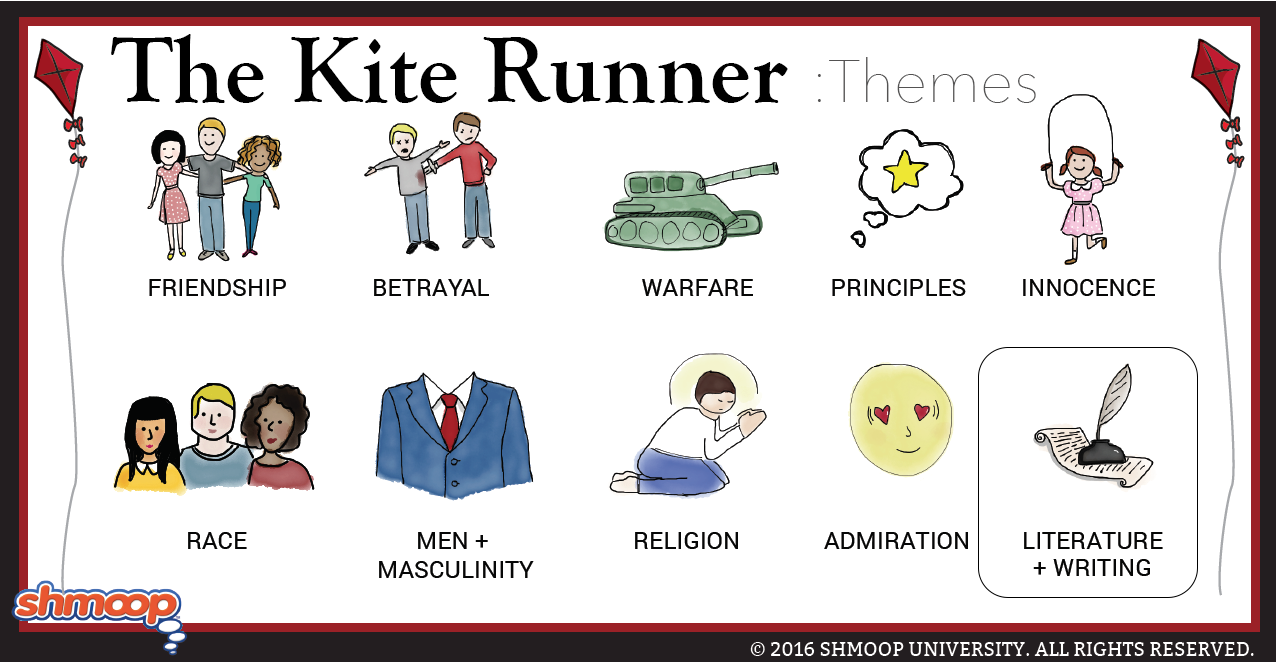 (Click the themes infographic to download.)
(Click the themes infographic to download.)
When the protagonist of a novel is a writer, there's a good chance the novel will have plenty of juicy commentary about writing. That's certainly the case with The Kite Runner. Some responsible and some questionable writing practices crop up throughout the novel. Early on, literacy becomes a tool to manipulate the illiterate. On a brighter note, however, literature also builds a bridge to family members who died before us, giving breath and voice to absence. Writing briefly becomes a method of escape for our protagonist. Later, however, it turns into a nifty device for self-exploration.
Questions About Literature and Writing
- A few characters ask Amir if he writes about Afghanistan. Do you think Hosseini, in the end, endorses wildly imaginative literature in The Kite Runner? Or does The Kite Runner demand literature tethered to our lives and the political events that shape them?
- Amir treasures the leather-bound notebook Rahim Khan gives him but throws away the biography of Hitler Assef gives him. Comment on these two uses of writing and Amir's choice of the notebook.
- Hassan seems to have a particularly pure love for literature. Does Hassan, in a way, teach Amir how to love literature? Is Hassan Amir's first literary mentor (Rahim Khan being the second)?
- So, there's a fictional piece of fiction in The Kite Runner called A Season for Ashes. Amir's novel tells the story of a professor who runs away with a clan of gypsies after he finds his wife cheating on him with one of his students. Do you think Amir is proud of his book A Season for Ashes? Would you be proud of it? How is its plot relevant to The Kite Runner and to Amir's life?